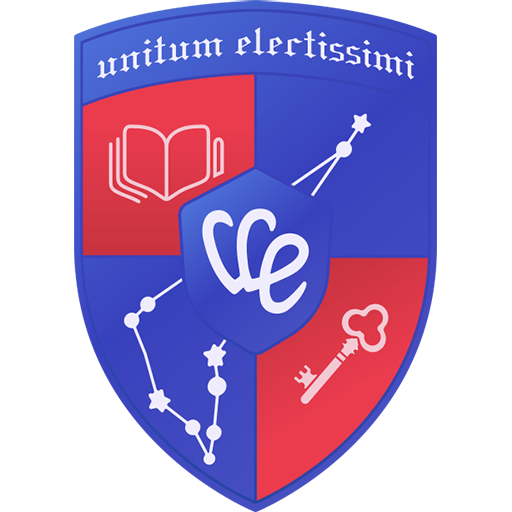TMUA 및 MAT 자기주도학습 세트
유이의 TMUA 및 MAT 자기주도학습 세트을 선택해야 하는 이유는 무엇인가요?
강사의 지도로 효율성을 극대화
방대한 문제 은행을 통한 철처한 연습
실제 모의고사로 실전 감각 익히기
상세한 해설을 통한 깊은 이해
단계별로 부족한 부분을 보완
언제 어디서나 자유롭게 학습
정교하게 제작된 문제 제공
전문성을 지닌 강사와 시험 동향의 반영

강사의 지도로 효율성을 극대화
셰타오 선생님의 직접 강의로, TMUA와 옥스포드 MAT의 모든 시험 컨텐츠를 깊이 있게 분석하고, 시험 범위를 전반적으로 커버합니다.

방대한 문제 은행을 통한 철처한 연습
1360문제 연습, 주제와 난이도별 분류, 상세한 해설 포함, 학습 내용을 공고하게 만들어드립니다.

실제 모의고사로 실전 감각 익히기
8세트의 TMUA+4세트의 MAT 실전 모의고사로, 시험 환경에 미리 적응할 수 있게 도와드립니다.

상세한 해설을 통한 깊은 이해
각 문제마다 상세한 단계별 해설을 제공하여, 문제의 해결 과정을 철저히 이해하고, 통찰력을 키울 수 있습니다.

단계별로 부족한 부분을 보완
연습 문제와 모의고사 문제의 난이도를 단계화해서 제공하여, 목표 지향적인 훈련으로 시험 대비 능력과 숙련도를 전반적으로 향상할 수 있습니다.

언제 어디서나 자유롭게 학습
컴퓨터, 휴대폰, 태블릿에서 학습 진도를 동기화하여, 시간과 장소에 구애받지 않고 자유롭게 진행할 수 있습니다.

정교하게 제작된 문제 제공
셰타오 선생님 팀에서 문제들을 직접 제작하거나 변형하여, 최적화된 형태로 시험 준비를 도와드립니다.

전문성을 지닌 강사와 시험 동향의 반영
셰타오 선생님의 다년간의 교육 경험, 전문적이고 효과적인 방법, 시험 동향에 따라 지속적으로 업데이트된 강의 내용을 제공해 드립니다.
누가 가장 큰 혜택을 받을까요?
01
옥스퍼드, 캠브리지, 임페리얼, LSE, UCL 등의 대학에서 수학, 컴퓨터 과학, 경제학 또는 관련 전공을 공부하고자 하는 학생.
02
TMUA 및 옥스퍼드 MAT 시험에서 우수한 성적을 거두어 경쟁 우위를 확보하고자 하는 수험생.
03
이러한 매우 어려운 시험을 체계적이고 효율적인 방식으로 준비하고자 하는 학생.
TMUA와 옥스포드 MAT 성공 여정, 여기서 시작됩니다
유이 TMUA 및 MAT 자기주도학습 세트 프로그램은 3개의 주요 모듈로 구성되어 있으며, 3가지의 맞춤형 코스 조합을 제공합니다. 다양한 학업 배경을 가진 학생들의 요구에 정확하게 부합합니다.
지금 바로 나만의 TMUA와 옥스포드 MAT 성공 전략을 설계하세요!
TMUA & MAT 과정 설정
코스 조합 | TMUA | MAT | TMUA 및 MAT |
|---|---|---|---|
| TMUA 및 MAT 핵심 모듈 | ✅ | ✅ | ✅ |
| TMUA 심화 모듈 | ✅ | ✅ | |
| 옥스퍼드 MAT 심화 모듈 | ✅ | ✅ | |
| 챕터 수 | 20 | 20 | 25 |
비디오 수업 시간 | 20시간 | 20시간 | 25시간 |
| 연습 모듈 | 40 | 40 | 50 |
| 연습 문제 수 | 1216 | 1111 | 1360 |
| 권장 학습 시간 | 87-107시간 | 110-135시간 | 125-155시간 |
| 가격 | US$1 459 | US$1 313 | US$1 898 |
* 각 조합은 비디오 강좌 모듈, 연계된 연습 문제 세트 및 실전 모의고사를 포함하여 학습 효과를 강화하는 데 도움을 줍니다.
* 시험일까지 강좌 자료를 이용하여 자신의 속도에 맞춰 학습할 수 있습니다.
무료 평가판
과정 자료
교재 (PDF)
교재는 매년 최신 시험 출제 경향을 반영하여 개정되며, 수백 개의 시험 유형 예제를 포함하여 고득점을 달성하는 데 도움을 줍니다.
샘플 교과서를 보거나 다운로드하려면 여기를 클릭하십시오.
교재는 매년 최신 시험 출제 경향을 반영하여 개정되며, 수백 개의 시험 유형 예제를 포함하여 고득점을 달성하는 데 도움을 줍니다.
샘플 교과서를 보거나 다운로드하려면 여기를 클릭하십시오.
동영상 강의
다음은 TMUA와 옥스퍼드 MAT 시험의 모든 주요 난제를 단계적으로 마스터할 수 있도록 도와주는 세 가지 비디오 강좌 모듈입니다.
연습문제 (온라인)
최신 시험 출제 경향을 반영하기 위해 교재는 매년 개정되며, 수백 개의 시험 유형 예제를 포함하여 고득점을 달성하는 데 도움을 줍니다.
1000개 이상의 온라인 연습문제가 모든 시험 핵심을 커버하며, 상세한 해답을 제공하여 문제 해결 능력과 계산 속도를 효과적으로 향상시킵니다.
최고의 학습 효과, 놀라운 가격!
여름방학 특강
+
입학 에세이
+
입학 에세이
=




자주 묻는 질문
TMUA(대학 입학 수학 시험)는 컴퓨터 기반 시험으로, 지원자의 수학적 사고 능력과 추론 능력을 평가합니다. 영국 일부 대학에서는 수학 및 관련 전공 지원 자격 요건으로 TMUA 시험을 요구합니다. TMUA 시험에 대한 자세한 정보는 TMUA 시험 완벽 가이드 — 시험의 핵심 정보 빠르게 파악하기를 참고하세요.
옥스포드 MAT(수학 입학 시험)는 2023년부터 컴퓨터 기반 시험으로 변경되었으며, 문제 해결 능력과 수학적 추론 능력에 중점을 둡니다. 옥스포드 대학교의 수학 및 컴퓨터 관련 학과 지원 시 필수적인 시험입니다. 옥스포드 MAT 시험에 대한 자세한 정보는 옥스포드 MAT 시험 완벽 가이드 — 시험의 핵심 정보 빠르게 파악하기를 참고하세요.
다음과 같은 학습 자료를 제공합니다:
- 정성껏 제작된 비디오 강좌 (TMUA & MAT동영상 강좌 신청자에 한함)
- 다운로드 가능한 교재 PDF 파일
- 온라인 연습 문제집
- 모든 문제에 대한 상세한 해설 (온라인)
- 강좌 구매 시 무료 제공되는 분류별 기출 문제집 PDF 파일
당사의 커리큘럼 자료의 문제는 일부는 숙련된 전문 팀이 작성하고, 일부는 역대 기출 문제를 각색한 것입니다. 이렇게 하면 연습 문제의 품질을 보장하고, 동시에 실제 시험의 스타일과 난이도에 익숙해질 수 있습니다.
결제가 완료되면 온라인 계정을 통해 비디오 강좌(TMUA & MAT 비디오 강좌 사용자만 해당)을 시청하고 온라인 연습 문제를 풀 수 있습니다. 2년 동안 언제 어디서나 컴퓨터 태블릿 휴대폰 등의 기기를 사용하여 온라인 동영상 수업을 재생할 수 있습니다.
비디오 강좌과 자료가 포괄적으로 설계되어 있지만, 우리는 당신이 공부하는 과정에서 여전히 문제가 있거나 더 나은 학습 효과를 얻어야 할 수도 있다는 것을 이해합니다. 이를 위해 우리는 유료 과외 서비스를 제공하고 개인 맞춤형 과외를 제공하고 당신의 질문에 상세히 답변해 드립니다. 맞춤 과외에 대한 자세한 내용은 연락 주세요.
동영상 수업과 연습 문제집은 환불이 되지 않으니 주의해 주세요. 구매하기 전에 수업 요강, 교재 샘플, 연습 문제 샘플, 일반적인 질문과 답변 등을 포함한 수업 세부 사항을 꼼꼼히 읽어 보시기 바랍니다.
우리의 전문 지원 팀은 기술적인 문제나 어려운 문제를 해결할 수 있도록 항상 도와드릴 준비가 되어 있습니다. 당신은 인스턴트 메신저 앱이나 info@ueie.com을 통해 그들에게 연락할 수 있습니다.





